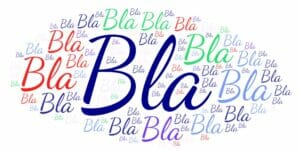Are you feeling a bit lost in the world of French grammar? Don’t worry, it happens to the best of us! One of the most common confusion for learners of the French language is understanding the nuances between similar-sounding constructions, such as “faire,” “se faire,” “faire faire,” and “se faire faire.” Let’s unravel the mystery and shed light on these often-confusing concepts.
Before starting let`s review how to conjugate the verb Faire in present tense.
je fais
tu fais
il fait
nous faisons (pronounce noo feh-zohn)
vous faites (pronunce voo feht)
ils font
Faire = To do – To make
Think of “faire” as the French word for “do” or “make.” It’s super handy and can be used in lots of different ways: to talk about the tasks, the weather and about sport and activities.
For Tasks
- Je fais mes devoirs. (I do my homework.)
- Elle fait un gâteau. (She makes a cake.)
- Je fais la vaisselle. (I do the dishes)
For the weather
- Il fait beau. (It`s a nice weather)
- Il fait chaud. (It`s hot)
- Il fait froid. (it`s cold)
For sport and activities
- Je fais du judo
- Elle fait du vélo
- Ils font du sport
Faire + infinitive verb
“Faire” + infinitive can be used to indicate causing someone to do something, similar to the English construction “to make someone do something” or “to have someone do something.” The subject makes the decision and the other person does it.
- “Je fais manger les enfants.” (I make the children eat.)
- “Elle fait réparer sa voiture.” (She is having her car repaired.)
- “Elle fait rénover sa maison”. (She is having her house renovated)
Remember that the verb “faire” conjugates according to the subject, and the infinitive verb remains in its infinitive form.
Faire + Faire
“Faire faire” is a construction in French that involves using the verb “faire” twice in a sentence. “Faire faire” allows for a concise way to express the delegation of tasks or actions to others, whether it’s for personal chores, professional services, or any other activities. It used like Faire + infinitive verb.
- “Je fais faire ma couleur.” (I have my colour done)
- “Elle a fait faire son portrait.” (She had a portrait done)
- “Elle fait faire son ménage” (She has a cleaning done by an agency)
Se Faire + Infinitive verb
“Se faire” followed by an infinitive verb in French is a reflexive construction that conveys the idea of having something done to oneself. Here are the main points about using “se faire” + infinitive.
First let`s review how to conjugate the reflexive verb Se Faire in present tense
- Je me fais
- Tu te fais
- Il/elle/on se fait
- Nous nous faisons
- Vous vous faites
- Ils/elles se font
“Se faire” + infinitive is used when someone is experiencing or undergoing an action done to them by someone else. For example:
- “Elle se fait coiffer chez le coiffeur.” (She gets her hair done at the hairdresser’s.)
- “Il se fait soigner par un médecin.” (He is being treated by a doctor.)
Remember that French grammar can be subtle and complex, so don’t get discouraged if you don’t master everything immediately. Consistent practice is the key to making progress.
Ready to embark on your journey to mastering spoken French? Join our French learning community today and unlock a world of linguistic possibilities.





